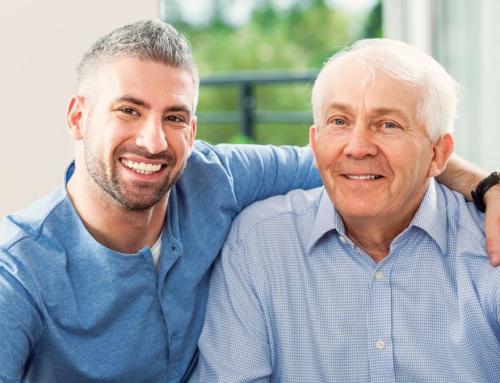Family and friends play a critical ‘carer’ role throughout the melanoma journey. In this supportive care article Claire Gore covers common carer experiences, tips for managing carer stress and resources available.
When your loved one is diagnosed with melanoma
Family and friends play a critical role from the time of melanoma diagnosis through treatment and into survivorship. Many people take on additional responsibilities such as accompanying the person with melanoma to medical appointments, coordinating or providing childcare, keeping friends/family updated, navigating the health care system, and providing emotional and social support. Taking on a carer role can be a rewarding experience. Providing support for someone during a time of need can bring a sense of satisfaction, achievement, and personal growth. It can promote intimacy and closeness in your relationship and create lasting memories. Caring for someone can also be challenging and changes the roles already established within your relationship.
Carer Experiences
Although everybody is different, it is common for carers to feel angry, scared, sad, helpless, overwhelmed, and guilty at times. It is also common for carers to grieve changes in the relationship and loss of activities that used to be done together. For some, there may be anger and frustration that plans have been disrupted, the nature of the relationship has shifted and there are additional responsibilities to manage.
Guilt is one of the most common emotions experienced by carers. Carers might feel guilty for being well and helpless that they cannot ‘fix’ the situation. They might feel guilty for wanting a break from their carer role, or resentment for being in that position. They also may feel guilty that they have needs or are experiencing painful emotions when they are not the ones diagnosed with melanoma. It can be common to feel lonely and isolated. Carers might feel as though nobody else understands what they are going through. Many carers feel a responsibility to prioritise the person with melanoma above their own needs and can start to feel invisible or as though are losing their own identity outside the carer role.
Impact on sexual relationships
Melanoma and its treatments can impact a person’s interest in sex. The emotional strain of caring for someone with melanoma might also leave carers feeling less interested in sex. It can be hard to switch from the roles of carer and patient back to being sexual partners. The cancer council has tips on how to manage changes in your sexual relationship here: https://www.cancercouncil.com.au/cancer-information/carers/caring-for-someone-with-cancer/how-relationships-can-change/changes-in-sexuality-and-intimacy/
Tips for managing carer stress:
If you are finding caring for your loved one tough, remember you are not alone. What you are feeling is likely to be common amongst friends and family of someone with melanoma. These simple tips might help you to look after yourself:
- Keep active: Regular exercise has many health benefits and can help with feelings of anger, stress, anxiety, and depression. Even a quick walk around the block can help.
- Take time for yourself: Do something relaxing or enjoyable each day.
- Talk to someone: A trusted friend, GP, medical team, or Carer Gateway Counselling Service: https://counselling.carergateway.gov.au/s/).
- Keep a journal: Writing down what you are thinking and feeling can help to release worry and frustration. It might also help you to notice areas you might like additional support.
- Be kind to yourself: No one is a ‘perfect carer’. Give yourself permission to do things outside of your caring role, whether it is pursuing a hobby or independently engaging in activities previously enjoyed with the person with melanoma.
- Join a support group: See more about MPA-MIA Support Groups, or Cancer Council Online Community: https://www.cancer.org.au/online-resources/cancer-council-online-community
- Focus on the value of caring: Acknowledging the benefits of caring may help you to feel better.
- Lighten the load: Use an app like Gather My Crew to conveniently organise transport, meals, help with the kids, grocery shopping or social visits among the person with melanoma’s social networks.
- Get the basics right: try getting enough sleep, nourish your body with a balanced diet, limit your alcohol intake.
Additional Resources
Websites, Podcasts & Apps
Website: Cancer Council – Caring for someone with cancer
Website: Cancer Council Victoria – Caring for someone with cancer: Common emotions of carers
Podcast: Cancer Council – Cancer affects the carer too
Podcast: Cancer Council – Caring for someone with advanced cancer
App: Gather My Crew
Fact sheet: Australian Cancer Survivorship Centre – Caring for a cancer survivor: tips for coping
Carer Gateway Counselling Service, Weekdays 8am – 6pm 1800 422 737
Phone numbers:
Cancer Council: 13 11 20
Carer Gateway Counselling: Weekdays 8am – 6pm 1800 422 737
Lifeline: 13 11 14






Very helpful, thank you so much for posting this.
Really insightful. I hope the carers out there can take something away from this.
Fantastic article, I found this very helpful given the battles our family have had to endure in recent years. Thank you very much, well articulated.